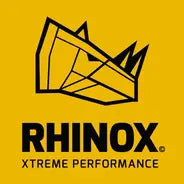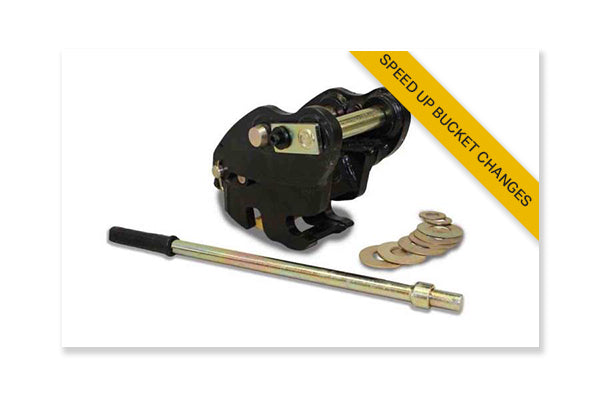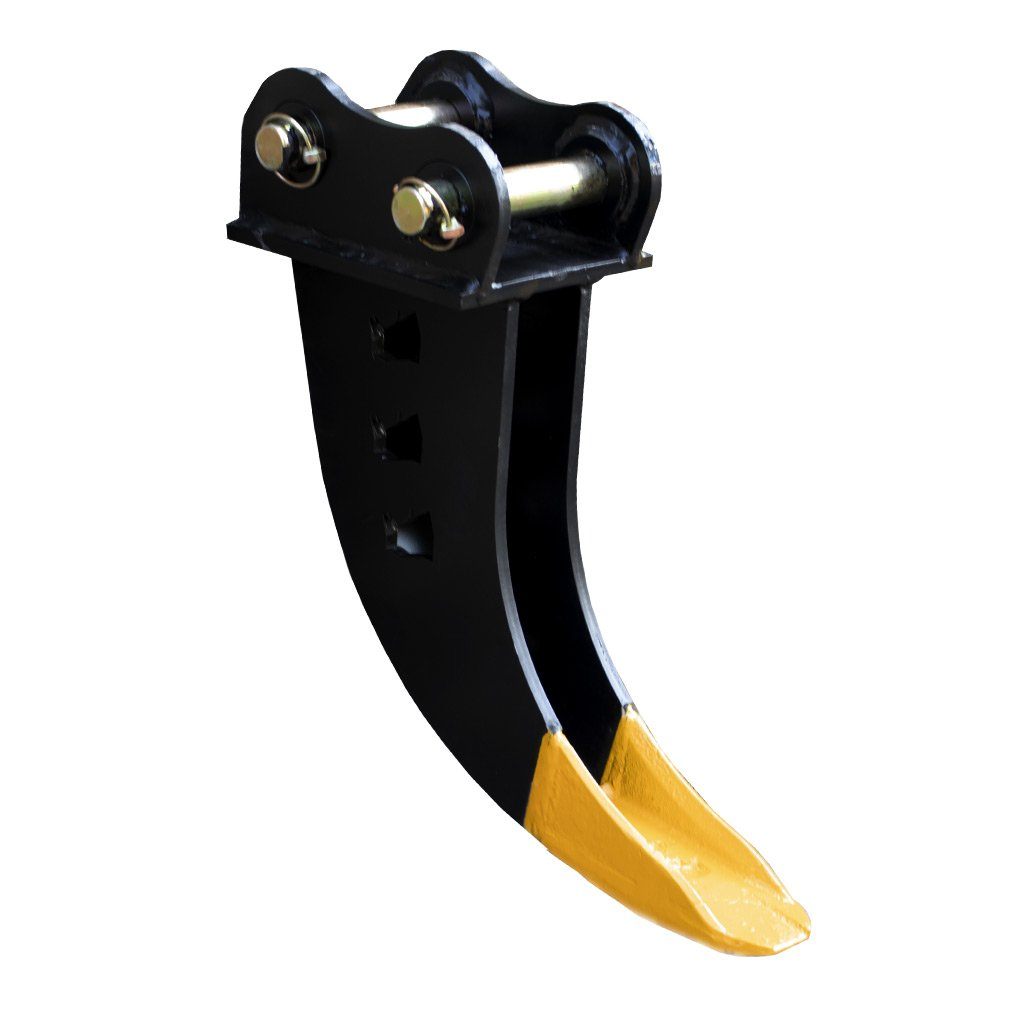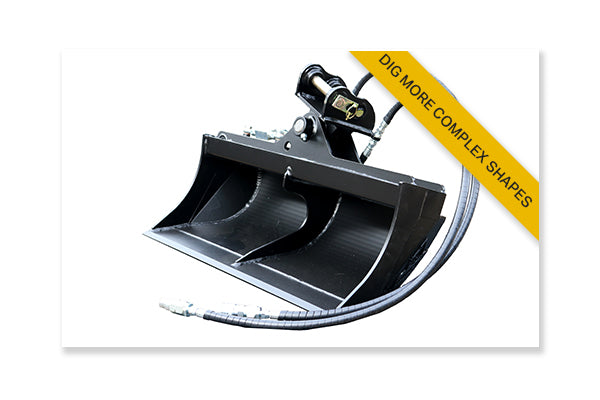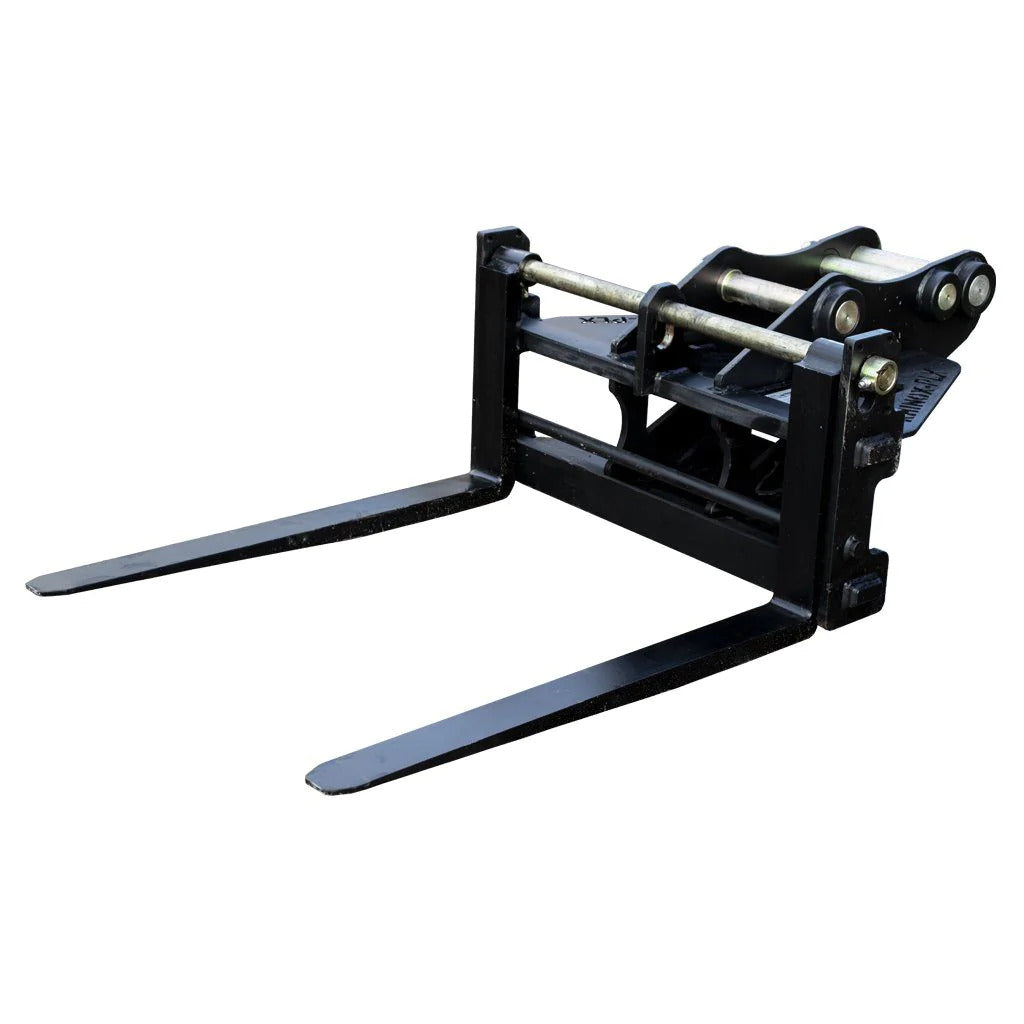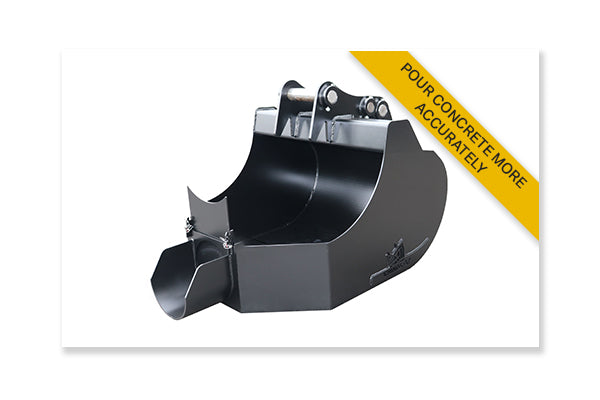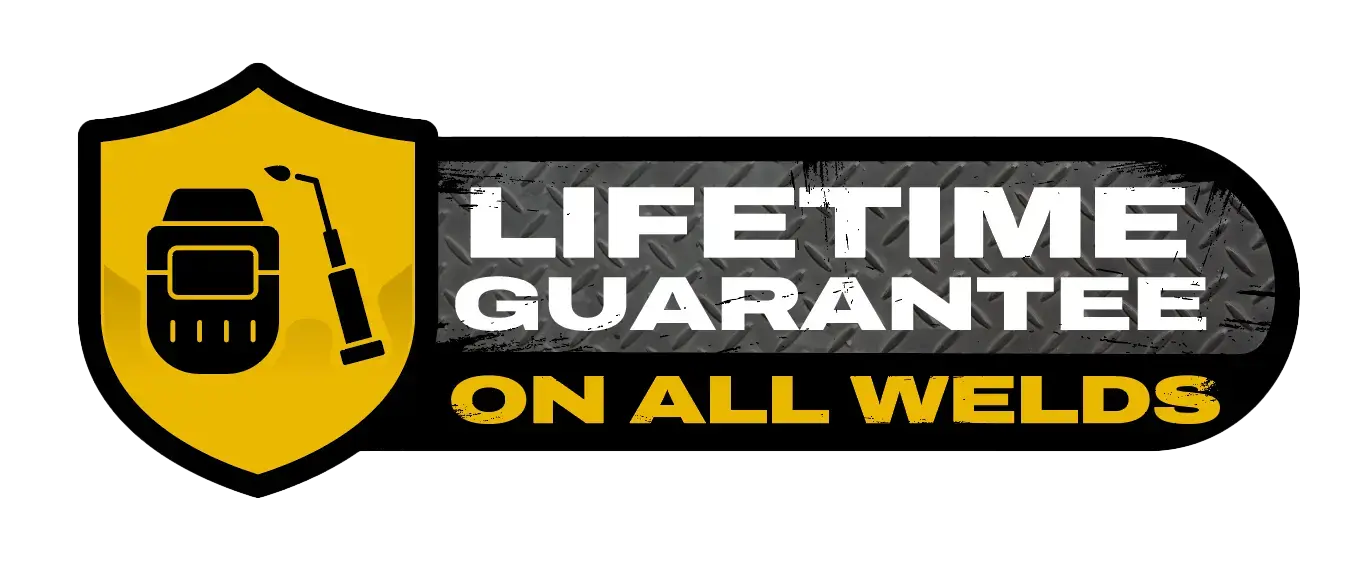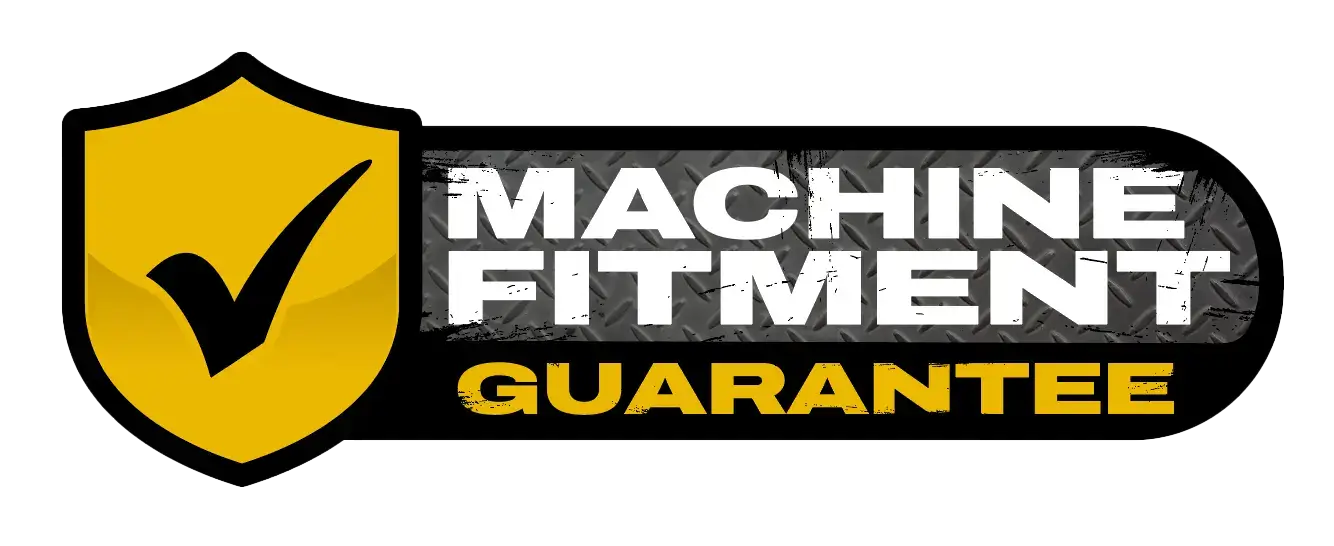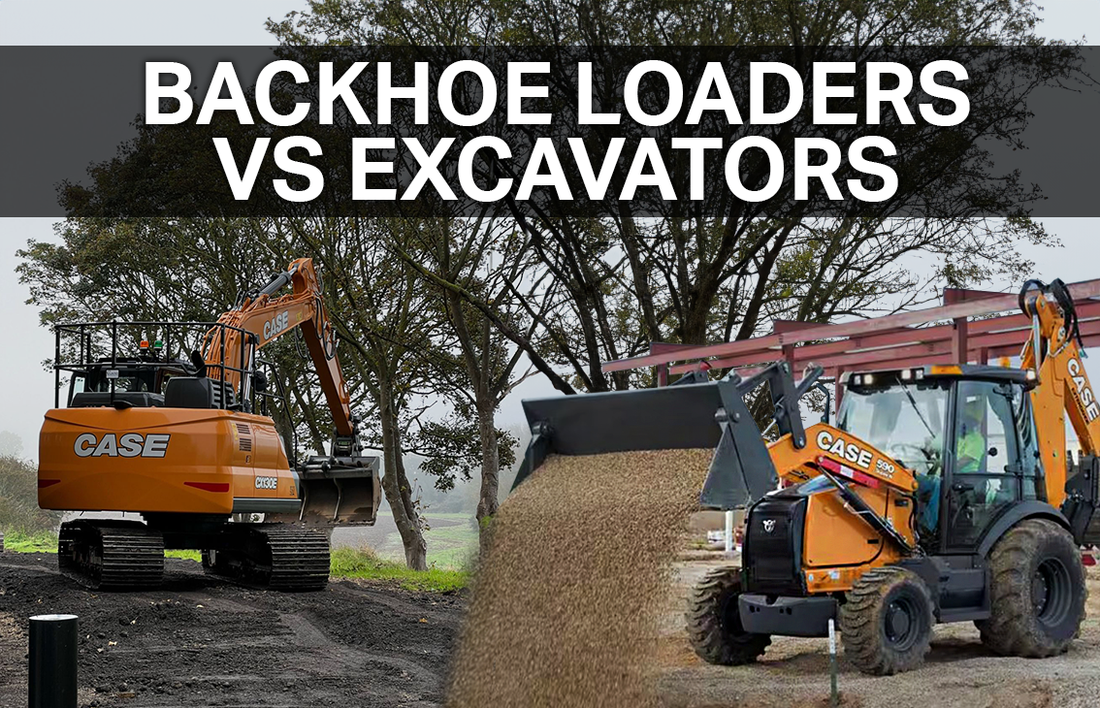
Backhoe Loader VS Excavator
In the construction industry, the choice between a backhoe loader and an excavator can significantly impact the efficiency and success of a project. Both machines are indispensable for digging, lifting, and moving materials, but understanding their differences and optimal uses is crucial. Let’s delve into the comparison between these two heavy-duty pieces of equipment to help you make an informed decision for your specific needs.
What's the difference between a Backhoe Loader and Excavator?
A backhoe loader is a versatile machine that combines the capabilities of a tractor, front loader and backhoe into one unit. The front end resembles a tractor with a loader bucket attachment, while the rear end features a hydraulic arm that can rotate up to 200 degrees. This design allows it to perform both digging and loading tasks efficiently. Where as an excavator is a specialised machine designed primarily for excavation and heavy-duty digging tasks. It consists of a 360 degree rotating operators platform mounted on tracks or wheels, with a long hydraulic arm and bucket or attachment at the end. Excavators offer greater reach, digging depth and precision compared to backhoe loaders.
Backhoe Loader |
Excavator |
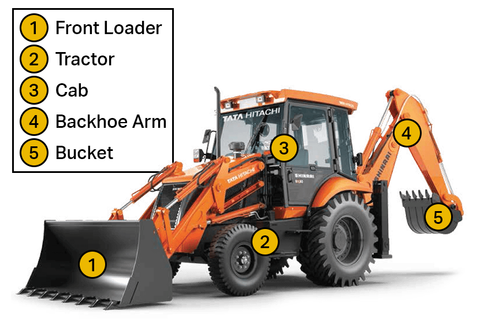 |
 |
When Should You Use an Excavator or a Backhoe Loader?
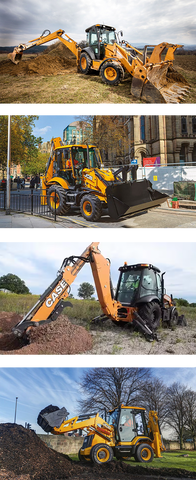
Best Uses of a Backhoe Loader:
- Excavation: Backhoe loaders are great for digging trenches, foundations and holes for various purposes such as laying pipes, cables or drainage systems.
- Loading and Material Handling: Backhoes can be used for loading and unloading materials like gravel, sand or debris onto trucks or into containers.
- Demolition: Backhoe loaders can be equipped with attachments like hydraulic breakers to demolish structures or break up solid surfaces like concrete.
- Landscaping: The backhoe is useful for landscaping tasks like digging ponds or lakes, shaping trenches and removing and moving trees.
- Utility Work: Backhoe loaders are commonly used by utility companies for tasks on roadsides or in cities, such as installing or repairing utility lines, poles or cables.
- Snow Removal: In colder months, the front bucket of a backhoe loader can be used for clearing roads and spreading salt to prevent ice.
- Farming and Agriculture: The backhoe loader can assist in tasks like clearing land, digging drainage trenches and loading hay and other agricultural materials.

Best Uses of an Excavator:
- Large-Scale Excavation: Excavators are ideal for large-scale excavation projects such as digging foundations for buildings, bulk moving material from quarries and digging reservoirs.
- Demolition: Excavators equipped with demolition attachments like hydraulic breakers or shears are used to dismantle structures like buildings, bridges or concrete slabs.
- Digging Deep Holes: The long reach and deep digging ability makes the excavator the ideal machine for digging deep holes, whether that's for testing foundations, mining or digging drainage.
- Material Handling: Excavators can be equipped with various attachments like buckets, grapples or thumbs to handle vast amounts of material, such as soil, gravel, rocks or debris.
- Landscaping and Grading: Excavators are used for landscaping projects like shaping terrain, creating slopes and removing obstacles like boulders or tree stumps.
- Road Construction: Excavators play a crucial role in road construction projects, including digging trenches for drainage, excavating embankments and removing obstacles along the road side.
- Utility and Pipeline Installation: Excavators are used to dig trenches for laying underground utilities such as water pipes, sewer lines and electrical cables.
- Mining and Quarrying: In mining and quarrying operations, excavators are used for tasks like stripping overburden, extracting minerals and loading ore and waste materials onto trucks.
- Environmental Remediation: Excavators are commonly used in environmental clean up projects to remove contaminated soil, excavate retention ponds, remediate hazardous waste sites and on recycling plants to handle material.
Backhoe Loader VS Excavator Operational Comparison
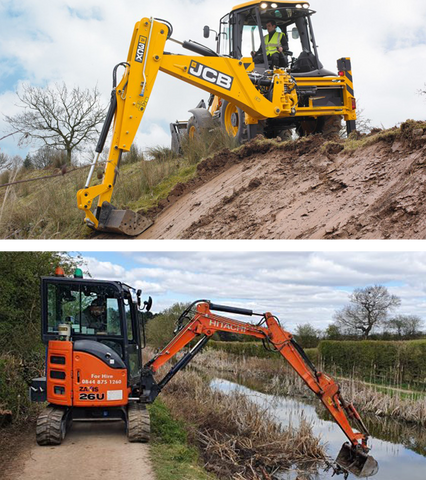
1. Versatility
When considering versatility, the backhoe loader stands out for its ability to handle a wide range of tasks, from digging to loading, across a whole range of environments. Its multifunctionality makes it indispensable in various settings. The backhoe arm can rotate up to 200 degrees, enhancing its manoeuvrability and reach for different digging tasks. On the other hand, the excavator excels in heavy-duty excavation and precise digging tasks but has limited capabilities when it comes to bulk loading due to the limitations of available bucket widths. Nevertheless, the excavator boasts a full 360-degree rotation capability, enabling it to easily access and work in any direction around the job site. Despite their differing strengths, both machines play essential roles on construction sites, complementing each other to efficiently tackle different aspects of the job.
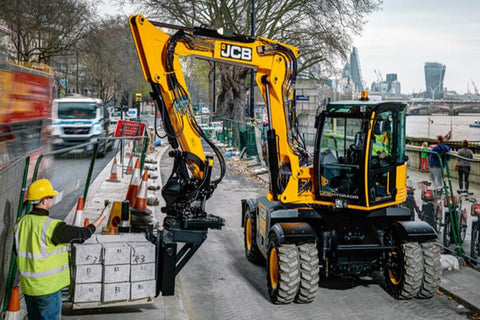
2. Size and Manoeuvrability
When comparing size and manoeuvrability, it's important to note that excavators can vary widely in size, ranging from 0.75 ton micro diggers suitable for smaller spaces to larger excavators designed for extensive excavation projects. The backhoe loader typically range from 5 to 9 tons and maintains a fairly compact size across ranges, making it efficient at manoeuvring complex job sites. Excavator size variability allows them to adapt to the demands of your different terrains and project requirements, while backhoe loaders ensure versatility and agility, particularly in constrained environments.
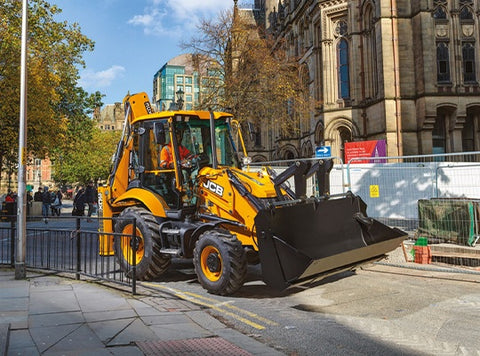
It's also worth noting that backhoe loaders are equipped with wheels, enabling them to travel on concrete or tarmac roads without causing surface damage. Wheeled excavators, also known as rubber ducks, or smaller excavators with rubber tracks also possess this capability. Where as, steel-tracked excavators can experience limits in the accessibility due to the risk of surface damage. But as with cars, wheeled equipment possess issues of accessibility and manoeuvrability on boggy sites. These variables underscore the adaptability of wheeled machines and tracked machines so understanding your terrains and project requirements will help you determine which machine is better suited to you projects.
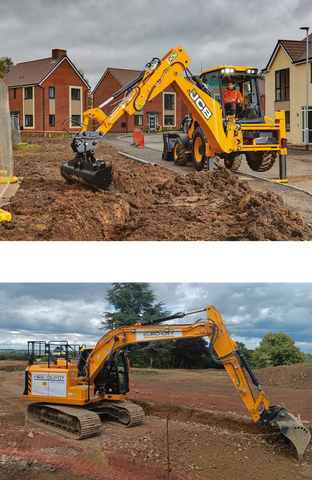
3. Reach and Digging Depth
When considering reach and digging depth, the distinction between backhoe loaders and excavators becomes evident. Backhoe loaders typically offer limited reach and digging depth in comparison to excavators, which are renowned for their extended reach and deeper digging capabilities. This advantage in reach stems from the design of excavators, which often feature longer hydraulic arms and booms that allow for a greater range of motion and reach. This characteristic makes excavators well-suited for large-scale excavation projects where significant depth is required.
In contrast, the more modest reach and digging depth of backhoe loaders render them suitable for shallower digging and loading tasks, making them ideal for smaller-scale projects or tasks that don't require extensive excavation. This difference highlights the specialised roles that each machine plays in the realm of construction and excavation, catering to varying project needs with precision and efficiency.
4. Precision and Control
When comparing the precision and control of backhoes and excavators, one stands out. Backhoe loader typically provides moderate precision for digging and loading tasks, although they may offer less control compared to excavators. Excavators are renowned for their superior precision and control, particularly at handling intricate excavation and grading tasks. This advantage stems from the advanced hydraulic systems and specialised attachments commonly found on excavators, which enables precise manipulation of materials. As a result, excavators excel in tasks that demand meticulous accuracy and finesse, while backhoe loaders are better suited for more generalised digging and loading tasks. This difference highlights the specialised capabilities of each machine.
Summary - Which is Best for You, Your Industry or Jobs?
Choosing between a backhoe loader and an excavator depends on several factors, including the nature of the project, site conditions, and specific requirements. Here's a summary to help you make the right decision:
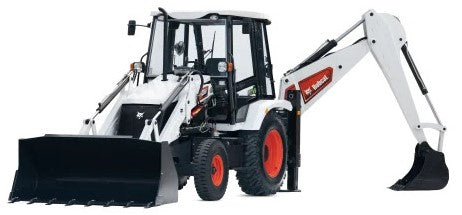
Choose a Backhoe Loader if:
- You require versatility for both digging and loading tasks.
- Your jobs require travelling across a site to perform tasks in various locations.
- You need a compact machine for general construction, landscaping or utility work.
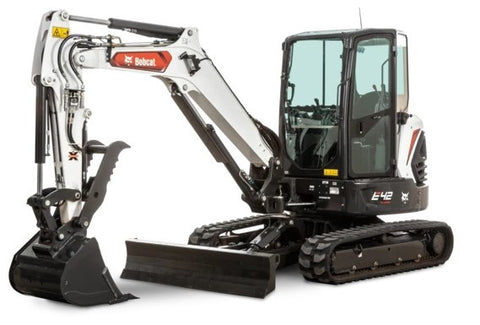
Choose an Excavator if:
- Your project demands heavy-duty excavation, deep digging, or precision work.
- Extended reach and digging depth are critical for the job.
- You prioritise superior control and precision for specialised tasks such as grading or demolition.
In conclusion, while both backhoe loaders and excavators are essential pieces of equipment across the construction, landscaping and agricultural industries, understanding their differences and applications is vital for maximising efficiency and productivity on the job site. By evaluating your specific needs and considering the key features and capabilities of each machine, you can confidently select the right equipment for you, your company or your next project.
Learn more with Rhinox:
 |
 |
 |
